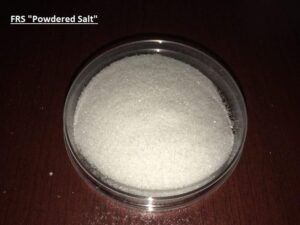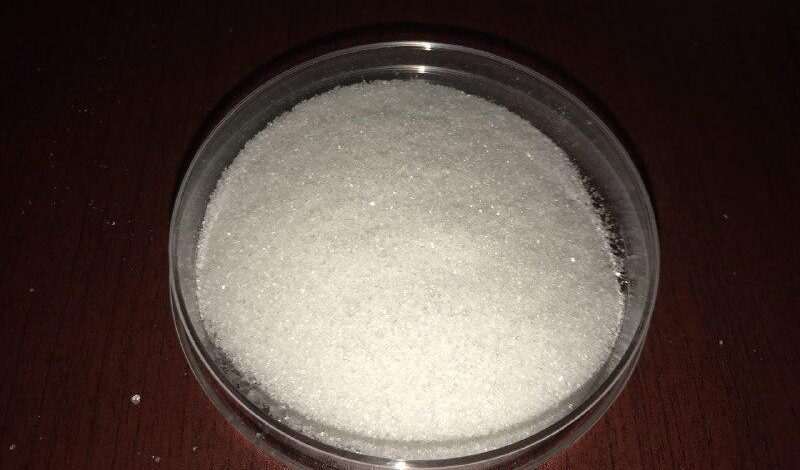Large Resources, Natural Formation, and Key Uses
The Global Importance of Industrial Salt
Industrial salt is a highly abundant and versatile mineral with widespread applications in chemical production, water treatment, de-icing, food processing, and various manufacturing industries. Unlike table salt, which is refined for human consumption, industrial salt serves bulk processes where purity, chemical composition, and large-scale availability are crucial.

With massive natural deposits found worldwide, industrial salt remains a fundamental raw material driving industrial growth. Therefore, this article explores the major global resources of industrial salt, how it forms in nature, and its diverse applications across various industries.
Large Industrial Salt Resources Around the World
Industrial salt ranks among the most abundant natural resources, with extensive reserves found in oceans, salt lakes, underground deposits, and evaporated basins. Moreover, the world’s largest salt producers include China, the United States, India, Germany, Canada, and Australia.
-
China – The Leading Salt Producer
China is the world’s largest producer of industrial salt, with vast resources obtained through:
-
Sea salt evaporation in coastal regions
-
Rock salt mining in Sichuan and Inner Mongolia
-
Salt lake extraction in the Qinghai-Tibet Plateau
-
United States – Major Salt Deposits
The U.S. possesses significant salt resources in:
-
Michigan and New York, where large underground rock salt mines operate
-
Coastal salt dome formations in Louisiana and Texas
-
Solar evaporation production at Utah’s Great Salt Lake
-
India – A Key Supplier of Industrial Salt
India’s salt industry centers primarily in Gujarat, which accounts for nearly 70% of the country’s total salt production. In addition, Tamil Nadu and Rajasthan are known for high-quality rock and solar salt. -
Germany and Canada – Rock Salt Leaders
Germany holds extensive rock salt reserves in the Werra and Stassfurt regions. Likewise, Canada is home to one of the world’s largest underground salt mines in Ontario. -
Australia and Mexico – Expanding Salt Production
Australia extracts salt mainly from coastal evaporation ponds, especially in Western Australia. Meanwhile, Mexico boasts large solar salt fields in Baja California.
With such abundant resources, industrial salt remains easily accessible and cost-effective, making it an essential raw material for global industries.
How Industrial Salt is Formed in Nature
Industrial salt forms naturally through various geological and chemical processes that take millions of years.
-
Evaporation of Seawater (Solar Salt Formation)
Most of the world’s salt originates from seawater evaporation in shallow salt pans, coastal lagoons, artificially created evaporation ponds, and natural salt lakes or inland seas. As the sun evaporates water, salt crystals are left behind, thereby forming solar salt deposits. -
Rock Salt Deposits from Ancient Oceans
Rock salt, also known as halite, occurs in underground salt mines. These deposits formed when ancient seas and lakes evaporated millions of years ago. Geological pressure subsequently preserved salt layers underground. Today, mining companies extract solid salt for industrial use. -
Salt Domes and Underground Deposits
Salt domes form when thick layers of underground salt push upward through sedimentary rock. These domes create concentrated, high-quality salt deposits, many of which mining companies extract for industrial salt and chemical production. -
Salt Crystallization from Brine
In some regions, salt extraction comes from natural brine sources, such as saltwater wells where underground water dissolves rock salt. Additionally, artificial brine processing plants evaporate water to recover salt.
Consequently, these diverse methods make industrial salt widely available for various applications.
Industrial Uses of Salt
Industrial salt serves multiple industries, making it an essential raw material for chemical processing, manufacturing, and environmental applications.
-
Construction Industry – The Largest Consumer of Gypsum
Gypsum is a primary material in the construction sector. It is used for plasterboard (drywall), plaster and stucco finishes, and cement production. These gypsum-based materials enhance fire resistance, insulation, and durability, thereby making them ideal for residential, commercial, and industrial buildings. -
Cement and Concrete Production
Gypsum regulates the setting time of cement, preventing premature hardening. It also improves the strength and durability of concrete structures while enhancing fire resistance in buildings and infrastructure. -
Agriculture and Soil Conditioning
Farmers widely use gypsum to improve soil structure by reducing compaction and enhancing aeration. It provides calcium and sulfur nutrients essential for plant growth and reduces soil salinity, preventing nutrient loss. Thus, gypsum is a preferred soil amendment for sustainable crop production in acidic and clay-rich soils. -
Water Treatment and Environmental Applications
Gypsum purifies wastewater in industrial plants, stabilizes heavy metals in contaminated soil and water, and reduces soil erosion in land reclamation projects. Its ability to neutralize acidic water makes it especially valuable in mining and industrial waste treatment. -
Industrial and Chemical Applications
Gypsum acts as a filler and coating agent in paper manufacturing. In food processing, it serves as an additive and preservative. The pharmaceutical industry uses gypsum for medical-grade plaster, tablets, and dietary supplements. -
Medical and Dental Applications
Healthcare and dentistry rely on gypsum for dental molds, impression materials, orthopedic casts, prosthetics, and surgical-grade plaster used in wound care and bone repair.
Commercial Uses of Gypsum
-
Home Improvement and Interior Design
Gypsum is popular in home décor, used for ceiling tiles, decorative panels, fire-resistant coatings, and acoustic panels that reduce noise in homes and offices. -
Art and Sculpture
Artists and architects use gypsum for moldable sculptures, ornate architectural moldings, and replica artifacts in museums and exhibitions. -
Personal Care and Cosmetics
Gypsum-based materials appear in exfoliating scrubs, face masks, bath salts, mineral cosmetics, and skin treatments for detoxification and moisture balance. -
Chalk and Writing Tools
Gypsum serves as the main ingredient in chalk used for educational blackboards, tailor’s fabric marking, and artistic drawing. -
Glass and Ceramics Manufacturing
In glass and ceramic production, gypsum enhances heat resistance, improves strength and quality, and reduces energy consumption during manufacturing.
Why Gypsum is a Preferred Industrial and Commercial Material
-
Abundant and Cost-Effective
Gypsum is widely available and easily mined, which makes it a cost-efficient industrial material. Lower production costs contribute to its accessibility for large-scale applications. -
Environmentally Friendly and Sustainable
Gypsum is 100% recyclable, helping reduce industrial waste. Additionally, it finds use in eco-friendly construction and soil conservation projects. -
Fire-Resistant and Durable
Gypsum-based construction materials improve fire safety while enhancing the durability and longevity of building structures.
Why Industrial Salt is a Key Global Resource
-
Abundant and Cost-Effective
Industrial salt is widely available across different regions and is easily extracted through mining, evaporation, and brine processing. Therefore, it remains an affordable resource for many industries. -
Essential for Various Industries
From chemical production to food processing, industrial salt plays an indispensable role. It also contributes significantly to water treatment and road safety, making it a vital resource worldwide. -
Environmentally Friendly and Sustainable
Salt can be recycled and reused in various industrial processes. Moreover, it supports eco-friendly applications in water treatment and pollution control.
In conclusion, industrial salt’s abundant availability, diverse formation methods, and wide-ranging uses make it a cornerstone resource in global industrial and commercial sectors. Consequently, its importance will only increase as industries expand and environmental regulations tighten.
Iran Industrial Salt Manufacturers

